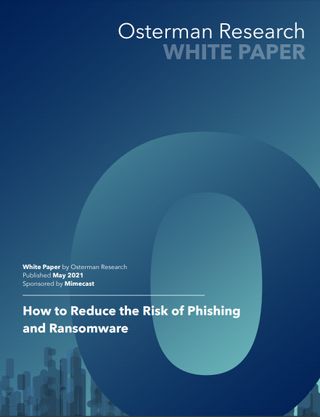Colonial Pipeline hack spurred copycat attacks on other oil and gas companies
New research reveals 29% increase in attacks on IT systems and perimeter defenses

Attacks on the oil and gas industry have increased over the last quarter with the Colonial Pipeline ransomware incident being a key driver.
According to a new report by Obrela Security Industries, the oil and gas sector was one of the only industries to experience a consistent increase in attacks on its systems. In contrast, many other industries saw fewer from April through June 2021.
The industry saw an 18% increase in attacks on its users and endpoints, a 22% increase in attacks on its cloud environments, and a 12% increase in attacks on its IT infrastructure. There was also a 29% increase in attacks on its system and perimeter defenses, a 14% increase in web attacks, and a 22% increase in APT and malware attacks.
“The data highlights that as the world watched Colonial Pipeline fall to its knees at the hands of ransomware, attacks on the whole oil and gas sector were heating up as cyber criminals across the globe tried to cash in on other pipelines,” said George Papamargaritis, operations officer at Obrela Security Industries.
The latest victim is Saudi Aramco, the world’s most valuable oil producer. Hackers demanded a $50 million ransom following a data leak on the dark web. This reinforced the report’s findings that attacks on oil and gas are rising and the industry should brace itself and expect attacks to worsen as cyber criminals test the industry’s defenses.

How to reduce the risk of phishing and ransomware
Top security concerns and tips for mitigation
Papamargaritis added that despite President Biden’s warning that critical national infrastructure should be off-limits to attacks, the oil and gas sector has been a prime target for cyber criminals. He noted the attack on Colonial Pipeline likely prompted this.
“When Colonial Pipeline publicly admitted to paying the ransom, attackers gained intelligence around how a successful attack on the sector is almost guaranteed to amount in a pay-out. The sector is at a greater risk than ever before and addressing security risks and hardening systems must be the number one priority,” he said.
Get the ITPro. daily newsletter
Receive our latest news, industry updates, featured resources and more. Sign up today to receive our FREE report on AI cyber crime & security - newly updated for 2024.
The report also found the health care sector experienced a 71% increase in attacks on internet of things (IoT) devices. However, there was a 58% decrease in attacks on banking and finance users and endpoints in the same quarter. There was also a 66% decrease in attacks on banking and finance IT infrastructure.
Rene Millman is a freelance writer and broadcaster who covers cybersecurity, AI, IoT, and the cloud. He also works as a contributing analyst at GigaOm and has previously worked as an analyst for Gartner covering the infrastructure market. He has made numerous television appearances to give his views and expertise on technology trends and companies that affect and shape our lives. You can follow Rene Millman on Twitter.





